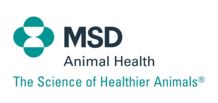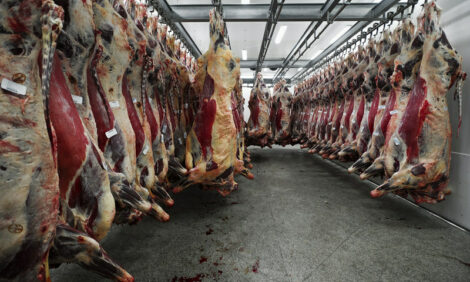



Merck Animal Health Statement on Five Steps to Responsible Beef
US - Merck animal health has laid out five-steps to responsible beef, a systematic review protocol that aims to answer the burning questions raised by the Tyson/Zilmax announcement.A Merck spokesperson commented: "We at Merck Animal Health pride ourselves on being a responsible company that puts animals and consumers first. The benefits and safety of Zilmax® (zilpaterol hydrochloride) are well documented and the product has a 30+ year history of research and development and rigorous testing.
"Worldwide regulatory agencies have reviewed extensive data on Zilmax and have concluded that use of Zilmax, according to the label, is safe in cattle. It is important to understand these data included rigorous animal health safety and well-being studies – conducted by university experts – that found the behavior and movement of cattle fed Zilmax is normal.
"It is Merck Animal Health’s policy to vigorously pursue all reported adverse events whether or not they are deemed related to the product. It is a responsibility we take very seriously. We are confident in the totality of our data and the safety of the product and the well-being of the animals that receive it."
In response to recent questions about Zilmax, we’re announcing our Five-Step Approach to Ensuring Responsible Beef and educating our customers and interested groups who are involved in animal husbandry and well-being.
- Merck Animal Health is committed to re-certifying every feeder/nutritionist/veterinarian that feeds Zilmax to cattle. The re-certification process will begin immediately. Special attention will be given to feed mixing and determining which cattle are good candidates for the use of beta-agonists. We will engage third party experts to provide periodic review of certifications.
- Within the next 30 days, Merck Animal Health is committed to reaching out to packers and suppliers to initiate a scientific audit, which will focus on the feeding of Zilmax, and will follow those cattle from the feedyard to the packing plant to determine potential causes of lameness and other mobility issues during feeding, transportation, offloading and staging at the processing facility. Merck Animal Health will do a thorough review of potential compounding factors—such as nutrition, transportation, receiving facilities, etc. We will perform this audit in conjunction with third-party experts.
- Based on our findings, Merck Animal Health is committed to reinforcing appropriate management practices for feeder customers to include overall nutrition and feeding objectives, animal handling, low-stress environments and transportation.
- Continuing in our work to advance animal well-being, we will form the Merck Animal Health Advisory Board within the next 30 days, made up of representatives from small, medium and large feeders, packers, cow-calf operators, as well as animal health and nutrition experts, to review available data. If additional recommended management practices are needed, these will be identified, shared and promptly implemented.
- Merck Animal Health takes our responsibility very seriously and is committed to sharing all of these findings and to be transparent.
| TheCattleSite News Desk | More MSD Animal Health News |



